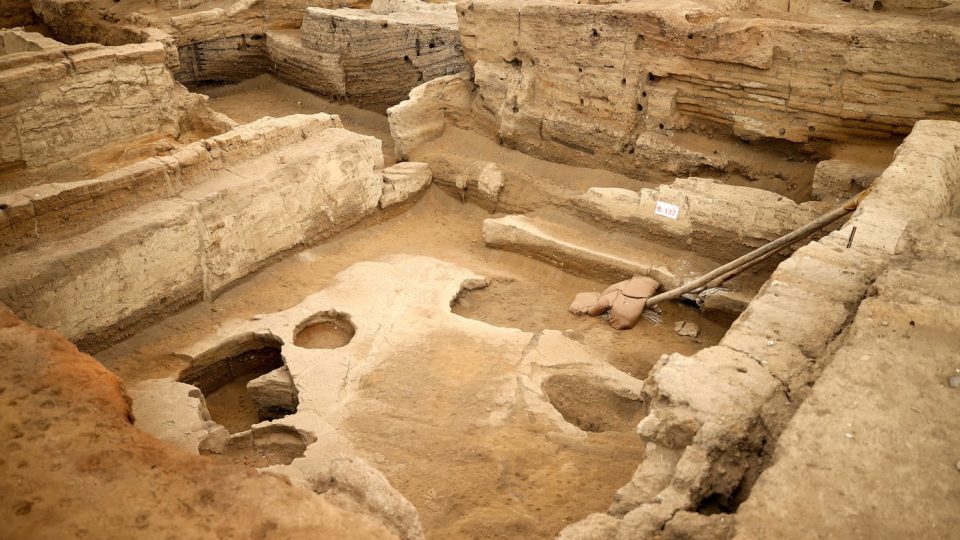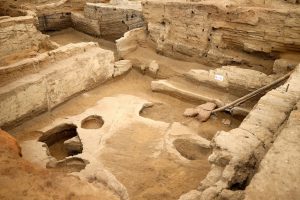In a groundbreaking archaeological discovery, researchers have unearthed what is believed to be the oldest bread ever found, dating back to a staggering 6,600 BC. This remarkable find was made near an oven structure in the region of Mekan 66, located within the Çatalhöyük archaeological site in southern Turkey.
The bread, preserved for millennia in its uncooked state, offers a fascinating glimpse into the culinary practices of our ancient ancestors. It was discovered alongside a trove of other artifacts, including wheat, barley, pea seeds, and intriguing palm-sized remnants that likely served as food items.
Archaeologists from Necmettin Erbakan University’s Science and Technology Research and Application Center (BİTAM), led by Ali Umut Türkcan, and supported by Gaziantep University lecturer Salih Kavak, meticulously analyzed the find. Their research revealed that the bread had been prepared by mixing flour and water to create dough, which was then left to ferment. Despite never being baked, the bread’s starches managed to survive the test of time, providing invaluable insights into ancient culinary techniques.
Describing the bread, Türkcan noted its resemblance to a smaller version of a modern loaf, with a distinct finger imprint at its center. This ancient dough, although uncooked, bore the unmistakable signs of fermentation, adding another layer of intrigue to its discovery.
The significance of this find extends beyond mere gastronomy. The presence of an oven structure nearby suggests a sophisticated understanding of food preparation and preservation among ancient inhabitants. The bread, along with the surrounding archaeological evidence, paints a vivid picture of daily life in Neolithic Turkey, offering tantalizing clues about early human settlements and societal development.
Kavak, reflecting on the discovery, expressed his initial surprise at the find’s organic nature. However, upon closer examination, it became evident that the remnants were indeed ancient bread dough, further supported by the presence of grain residues such as barley, wheat, and peas.
The preservation of both wood and bread by a thin layer of clay highlights the remarkable conditions that facilitated this extraordinary archaeological discovery. Türkcan emphasized the rarity of finding such well-preserved organic materials, underscoring the significance of this find for both Turkey and the wider world.
As researchers continue to analyze and interpret the findings from Mekan 66, one thing remains certain: the discovery of the world’s oldest bread offers a tantalizing glimpse into the culinary traditions of our ancient ancestors, providing a rich tapestry of insight into human history and civilization.


